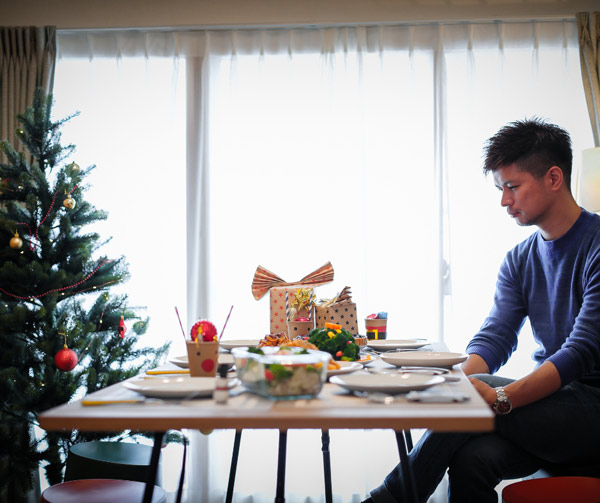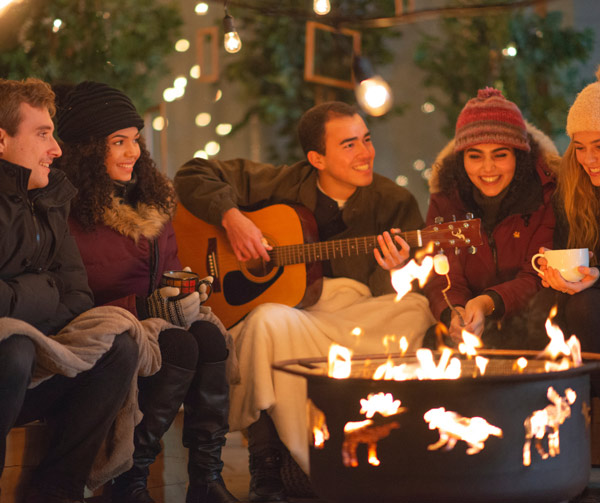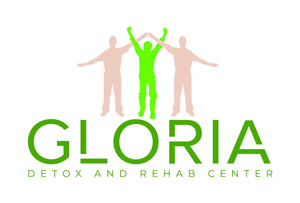The holiday season, often considered a time of joy and celebration, can be a challenging period for many individuals, especially those navigating the twisting path of addiction recovery. For those who have embarked on the journey to overcome substance use disorders, feelings of loneliness during the holidays can be particularly troubling. The struggle to maintain mental health and find support from family and the community is most important at this time of year.
Loneliness During the Holidays: A Harsh Reality

For individuals recovering from alcohol or drug abuse, holiday festivities can exacerbate feelings of loneliness. The season emphasizes family gatherings and social engagements, which can be a stark contrast to the isolation that many people recovering from addiction may feel. The pressure to conform to societal expectations during the holidays can lead to heightened stress, triggering emotional turmoil for those battling addiction.
Holiday season loneliness can turn into a downward spiral. Those in recovery may hurt the people around them because they feel hurt and angry. Loneliness can also disrupt sleep and increase anxiety, suicidal thoughts, and risk of self-harm. As loneliness fuels addiction, addiction also leads to loneliness. If the addiction worsens, many people end up damaging relationships and losing friends, creating even stronger feelings of loneliness and isolation. Without encouragement, it becomes increasingly hard to cope with feelings of loneliness, especially during the stress and bustle of the holidays.
Mental Health and Addiction Recovery: Inseparable Companions
The connection between cognitive health and substance abuse recovery is undeniable. Individuals facing substance use disorders often grapple with mental health conditions, compounding their challenges. It is crucial for those recovering from substance use disorders to acknowledge the intricate interplay between emotional wellness, addiction, and the holidays.
Navigating the holiday blues requires a strategic approach that incorporates mental health professionals and support groups. Seeking treatment for drug or alcohol use and actively participating in group therapy can be instrumental in addressing social isolation and fostering connections with others during this potentially isolating time.
Pillars of Social Support to Fight Loneliness

Friends and Family Members are Vital to Combat Feeling Lonely
The importance of family members in the treatment journey cannot be overstated. Holiday festivities provide an opportunity for individuals in recovery to lean on their families for support. Involving family members in the process strengthens bonds and creates a foundation of understanding and empathy.
Family support groups can serve as a valuable resource, offering insights into dealing with the challenges of recovery during the holidays. Open communication within families is critical, as it helps dispel the stigma surrounding addiction, relieves feelings of isolation, and facilitates a supportive environment for those in addiction treatment.
Finding Strength in Support Groups
Support groups can be pivotal in helping individuals fight loneliness during the holidays. Connecting with others with similar experiences can alleviate the isolation that often accompanies recovery. Being part of a support group provides a sense of togetherness, fostering a shared commitment to sobriety and mental well-being.
In the realm of addiction treatment, the Christmas season underscores the significance of these groups. Through shared stories and collective strength, those in recovery can navigate the challenges of the holidays, armed with the knowledge that they are not alone in their journey.
Strategies to Combat Loneliness: Building Social Connections

Seeking Out Social Interaction
Embracing human interaction in everyday life is a fundamental aspect of the healing journey for those battling addiction. People in recovery are encouraged to proactively seek opportunities for connection within their daily routines. Engaging with support groups tailored to their recovery needs provides a structured avenue for shared experiences and a sense of belonging.
Additionally, participating in local events and finding ways to meet people offers a chance for individuals to connect with like-minded peers outside the realm of addiction, fostering a diverse network of reinforcement. By incorporating these social elements into their lives, individuals in addiction treatment not only combat the pervasive loneliness often associated with recovery but also lay the foundation for a robust and interconnected support system.
Moreover, the simple act of reaching out to friends and loved ones plays a crucial role in breaking the cycle of isolation. Friends, when approached with honesty and vulnerability, can become pillars of strength on the path to recovery. Establishing and nurturing these relationships creates a buffer against loneliness that can be particularly pronounced during the holidays. By actively seeking social interaction in daily life, individuals in recovery from addiction to drugs and alcohol forge a path toward sustained well-being, finding strength in the collective embrace of a supportive unit.
Making New Friends Can Help Recovering Addicts Feel Connected
During the holiday season, the festive atmosphere opens up avenues for creating new connections and friendships. Social gatherings are more frequent and diverse, offering individuals a chance to engage with others in a positive and uplifting environment. Whether attending local events, holiday parties, or other festivities, these occasions present unique opportunities to connect with like-minded individuals who may share similar experiences or discuss shared interests.
Participating in activities for a worthy cause can also be a powerful way to forge meaningful connections during the holidays and cope with all the challenges of addiction treatment. Volunteering for charitable events or joining community service initiatives contributes to a greater purpose and exposes individuals to a network of others passionate about making a positive impact. These shared experiences create a sense of camaraderie and belonging, fostering connections that extend beyond the holidays. By actively seeking out and participating in these opportunities, recovering individuals can build a supportive network of old and new friends that plays a crucial role in helping to deal with loneliness and enhancing their overall well-being.
Seeking Treatment for Mental Health Disorders: Building Self-Esteem and Mental Resilience
Recovering from addiction is a multi-faceted journey that extends beyond the mere cessation of substance use. Low self-confidence, a frequent companion to addiction, can become particularly pronounced during the holiday festivities. The societal emphasis on joy and togetherness may intensify feelings of inadequacy and self-doubt for individuals in recovery.
To counteract these influences, those on the path of recovery must invest intentionally in building confidence and bolstering mental resilience. Seeking professional help, whether through therapy or counseling, provides a structured and supportive environment where individuals can explore the roots of their self-esteem issues, combat symptoms of depression and isolation, and develop strategies for improvement.
Engaging in activities that bring genuine joy and a sense of accomplishment can be transformative. Whether pursuing a hobby, learning a new skill, or participating in activities that align with personal interests, these positive experiences contribute to a more positive self-perception.
Additionally, practicing self-care becomes a crucial aspect of building mental resilience. Taking time for rest, relaxation, and self-reflection allows individuals in recovery to recharge physically and mentally. This intentional self-nurturing serves as a powerful tool in overcoming the hurdles associated with low self-esteem and contributes to the cultivation of mental resilience needed to navigate the complexities of the holidays and the ongoing journey of recovery.
The Importance of Emotional Well-being in Recovery
Feeling lonely, isolated, and experiencing symptoms of depression tied to addiction recovery are part of the journey. It is vital to acknowledge these feelings and address them with openness and honesty. By understanding the emotional landscape, individuals in recovery can better cope with stress, anxiety, and the challenges posed by holiday festivities.
A Call to Action: Prioritizing Emotional Health and Community Support to Fight Off Feelings of Loneliness
In the world of addiction recovery, the winter holidays serve as a critical juncture. For those at heightened risk of loneliness and isolation, it is imperative to prioritize mental health and seek the help needed to navigate this challenging time of year.
The National Alliance on Mental Illness (NAMI) emphasizes the importance of reaching out for help from loved ones and fostering a sense of social cohesion. By talking openly about emotions, seeking professional aid, and actively participating in support groups, individuals in recovery can lead fulfilling lives free from the shackles of addiction.
In conclusion, the holiday season need not be a time of despair for those in addiction recovery. By addressing feelings of loneliness, seeking help, and fostering social relationships, those in recovery can not only survive but thrive during this festive time. The journey to recovery is not one to be walked alone. It is a collective effort that involves friends, family, and a supportive community, guiding individuals toward a brighter and healthier future.
If you or someone you know experiences mental health issues, it is important to seek help from a qualified professional. Our Resource Specialists can help you find expert mental health resources to recover in your community. Contact us now for more information on this free service to our users.
About the Author:

Discover top-quality drug rehab in Los Angeles at Gloria Detox and Rehab Center, your trusted partner in addiction recovery. Located in the heart of Van Nuys, CA, our private facility adopts a holistic and personalized approach to help individuals overcome substance abuse. Our residential inpatient treatment and medical detox services are tailored for those in the Los Angeles area seeking a peaceful environment for healing and lifelong sobriety. Experience luxury rehab where every detail is meticulously designed to support individuals struggling with drug or alcohol addiction and underlying mental health concerns. Choose Gloria Detox and Rehab Center for comprehensive and compassionate care on your journey to recovery.
Photo by Any Lane: https://www.pexels.com/photo/black-family-cutting-down-fir-tree-5727745/
The opinions and views expressed in any guest blog post do not necessarily reflect those of www.rtor.org or its sponsor, Laurel House, Inc. The author and www.rtor.org have no affiliations with any products or services mentioned in the article or linked to therein. Guest Authors may have affiliations to products mentioned or linked to in their author bios.






Pretty! This has been a really wonderful post. Many thanks for providing these details.